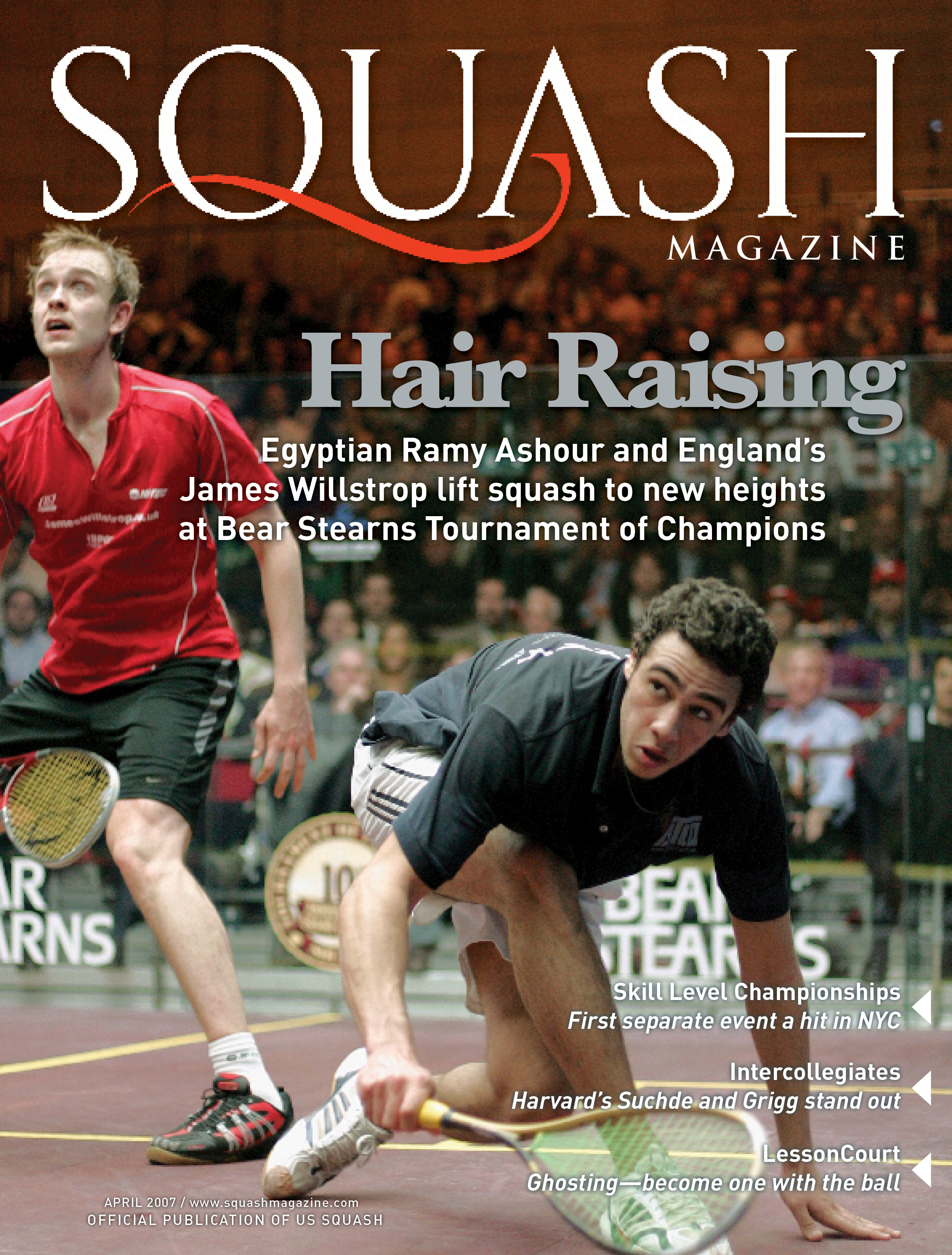Symington Said
In John O’Brien’s letter (page 4, April edition), quoted again in Rod Symington’s column (page 16, also April edition,) it was noted “…Though his opponent noticed (that his opponent had removed his protective glasses) immediately, and spoke to him about it, the offending player managed to play the middle section of game five without glasses…” Evidently, only the Referee could have said/done anything.
My question: What is the role/responsibility of the player still wearing protective glasses? Evidently he spoke to his opponent. Why did he play the next point, much less the “middle section of game five,” so long as his opponent declined to put his protective glasses back on?
Rod Symington said: “…others in authority must assist the Referee by giving advice if the latter fails to see that a player is not wearing the eyeguards…” Why did the first player not bring it to the attention of the Referee? What would have happened if he had refused to continue to play so long as his opponent declined to put his protective glasses back on?
Rod Symington continued: “…a Referee who permits players to go on court…without eyeguards is open to litigation in the event of injury…” What liability has the first player assumed by continuing to play with an opponent not wearing protective glasses, if injury results?
(P.S. The photo accompanying Symington’s article was nothing short of sensational. Great choice!)
Jon McBride
Chevy Chase, MD
Baltimore’s Stars
When the squash world talks about junior champions, the Philadelphia and New York areas are generally the top producers of players to buzz about. This year, Baltimore’s junior squash players have changed that mentality and have stated their presence among champions.
Although it continues to grow, I have found the level of junior squash players in the Baltimore area to be at the highest it has been since my arrival on the Baltimore squash scene five years ago. In March GU13 player, Katie Tutrone, announced her arrival in the competitive world of squash by winning the National Championship and becoming Baltimore’s first ever Junior National Champion. The level of dedication, hard work and desire to learn the game that Katie and many other local nationally ranked players display on a daily basis makes me confident that junior squash will continue to grow and thrive in the Baltimore area. While there are a couple of “Top-Ten” nationally ranked players in the area, it is hard to forget about the many other players who may not have yet received the accolades, but who show up to lessons and clinics with the same fire to be the best. It is working with each one of these kids that makes my life as a squash coach as fulfilling as it is.
Lefika Ragontse
Via email


